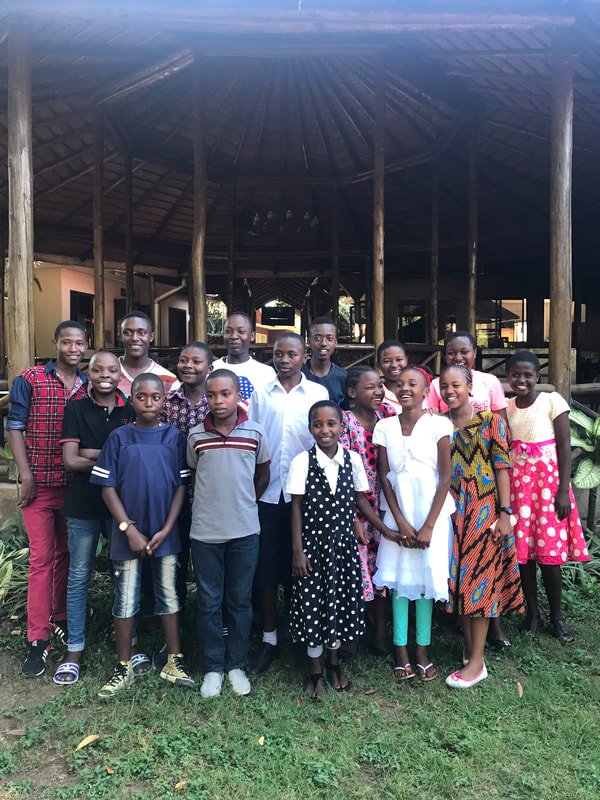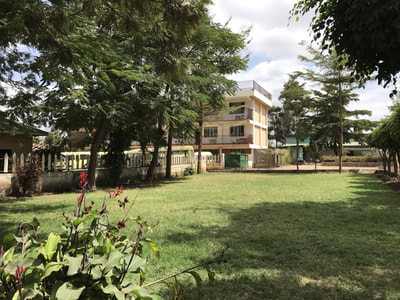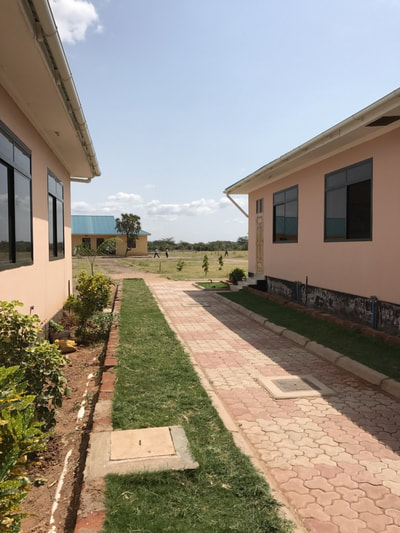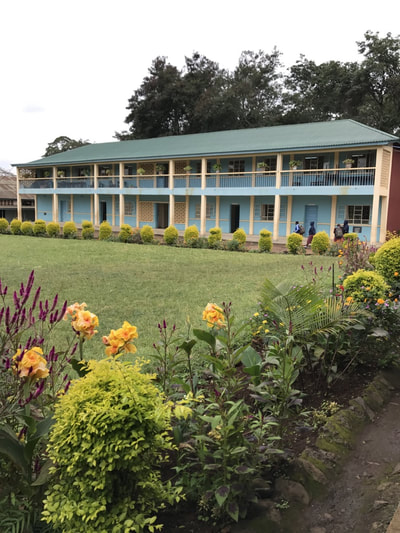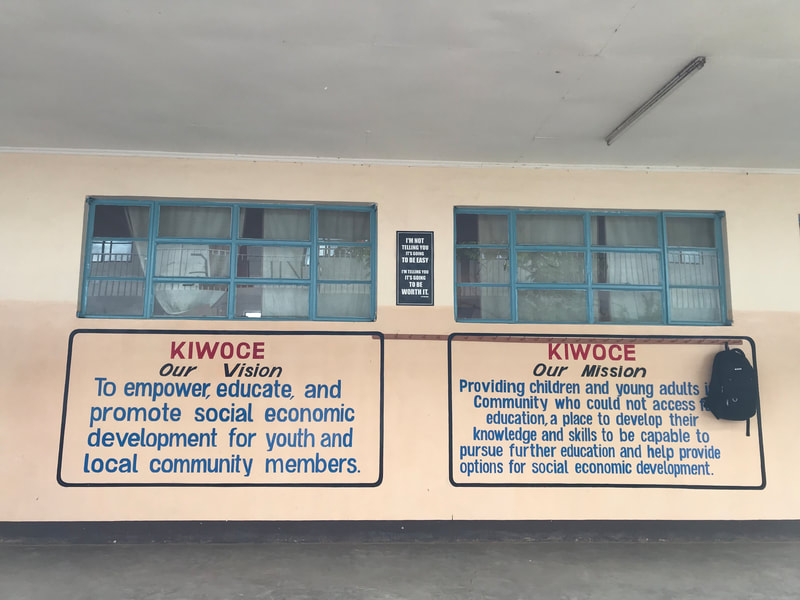How we got started
The Waka Waka Project got its start in the summer of 2010.
We were living and working in Tanzania (in the village where our kids live) and witnessed first-hand how conditions of severe poverty stifle education opportunities. At the end of the summer, heartbroken to have to leave after forming life-changing bonds with the kids, we saw an opportunity to help raise funds for their education and we took it. Education should be a basic human right ... and while there's universal agreement about that being true, the reality around the world is quite different. Globally, an estimated 258 million school-aged children are not in school, which means that 1 out of 5 children is being deprived of the basic right to learning. Not being in school is mentally and physically detrimental to children and for the future well-being of the communities they live in. Were it not for your donor support, our kids would still be part of this tragic statistic.
Our work in Tanzania has been eye-opening, rewarding, and challenging. With the invaluable help of many along the way, (of EdPowerment, in particular, as the education non-profit through which we kicked off* our program in September 2011) we've been tirelessly fundraising to support our kids and their families for nearly 10 years. The road to get them all through school, however, is still a long one and our commitment to the Waka Waka kids is for life.
Getting to see them grow up and thrive has been such a privilege.
We are fierce believers in the power of education. We've seen it transform the lives of our kids and know that it will continue to open doors to opportunity.
*we became our own 501(c)(3) California-registered public charity in 2014
About the project
The Waka Waka Project provides full-ride school sponsorships to 16 students. We have kept the project small to keep our work personal and sustainable.
We have unique, deep-rooted relationships with each of the kids and with their families; we have watched them grow up, know their parents and family lives, and can pin point their strengths and weaknesses as students, which helps us better address their individual education needs. We also support their families through various community initiatives and see our work as a collaboration that can help bring further change to this tiny corner of the world.
The Waka Waka kids- Amadeus, Alfonce, Brenda, Francis, Frank, Glory, Ivone, Jack, Jenny, Living, Pascal, Peter, Regina, Severina, Wema, and Yasiri- are our students, friends, family, and partners in this project and getting them through the entirety of their school years is not just our mission but our commitment. The kids all come from vulnerable home environments and school offers them not just an education, but also a stable, healthy, and positive-growth environment. The private schools they attend offer reduced class sizes, an English-language-based curriculum, and three healthy meals per day. Most of our students attend boarding schools, where they get to build relationships with their peers, dedicate more time to their studies, and receive additional support and mentorship from teachers and after-school tutors.
Our kids are strong, smart, and tenacious and we hope that through education they find increased opportunities in life.
The Waka Waka Project got its start in the summer of 2010.
We were living and working in Tanzania (in the village where our kids live) and witnessed first-hand how conditions of severe poverty stifle education opportunities. At the end of the summer, heartbroken to have to leave after forming life-changing bonds with the kids, we saw an opportunity to help raise funds for their education and we took it. Education should be a basic human right ... and while there's universal agreement about that being true, the reality around the world is quite different. Globally, an estimated 258 million school-aged children are not in school, which means that 1 out of 5 children is being deprived of the basic right to learning. Not being in school is mentally and physically detrimental to children and for the future well-being of the communities they live in. Were it not for your donor support, our kids would still be part of this tragic statistic.
Our work in Tanzania has been eye-opening, rewarding, and challenging. With the invaluable help of many along the way, (of EdPowerment, in particular, as the education non-profit through which we kicked off* our program in September 2011) we've been tirelessly fundraising to support our kids and their families for nearly 10 years. The road to get them all through school, however, is still a long one and our commitment to the Waka Waka kids is for life.
Getting to see them grow up and thrive has been such a privilege.
We are fierce believers in the power of education. We've seen it transform the lives of our kids and know that it will continue to open doors to opportunity.
*we became our own 501(c)(3) California-registered public charity in 2014
About the project
The Waka Waka Project provides full-ride school sponsorships to 16 students. We have kept the project small to keep our work personal and sustainable.
We have unique, deep-rooted relationships with each of the kids and with their families; we have watched them grow up, know their parents and family lives, and can pin point their strengths and weaknesses as students, which helps us better address their individual education needs. We also support their families through various community initiatives and see our work as a collaboration that can help bring further change to this tiny corner of the world.
The Waka Waka kids- Amadeus, Alfonce, Brenda, Francis, Frank, Glory, Ivone, Jack, Jenny, Living, Pascal, Peter, Regina, Severina, Wema, and Yasiri- are our students, friends, family, and partners in this project and getting them through the entirety of their school years is not just our mission but our commitment. The kids all come from vulnerable home environments and school offers them not just an education, but also a stable, healthy, and positive-growth environment. The private schools they attend offer reduced class sizes, an English-language-based curriculum, and three healthy meals per day. Most of our students attend boarding schools, where they get to build relationships with their peers, dedicate more time to their studies, and receive additional support and mentorship from teachers and after-school tutors.
Our kids are strong, smart, and tenacious and we hope that through education they find increased opportunities in life.
About the schools our kids attend
Unlike many other education NGOs that support one particular school, we work with a number of schools across the Kilimanjaro region to best accommodate our kids' circumstances and educational development. When we first started, our kids attended the neighboring schools that were easy to reach by foot and made for a smooth transition. But ass they got older, we've branched out to different schools to better suit their individual learning needs and personal well-being. Our Project is purposefully small for this very reason: so that we can cater to the needs of our kids so as to better harness the opportunities that school sponsorships offer.
Each summer, we visit new school campuses to meet with teachers and principals, to learn about each school's curriculum, and to get a first-hand glimpse of the boarding environment each has to offer. Boarding schools have become an important part of our sponsorship program and where the kids live for about 10 months out of the year.
School selection is an on-going process for us, as our kids grow up and their needs shift, but these are some of the schools they currently attend:
Each summer, we visit new school campuses to meet with teachers and principals, to learn about each school's curriculum, and to get a first-hand glimpse of the boarding environment each has to offer. Boarding schools have become an important part of our sponsorship program and where the kids live for about 10 months out of the year.
School selection is an on-going process for us, as our kids grow up and their needs shift, but these are some of the schools they currently attend:
